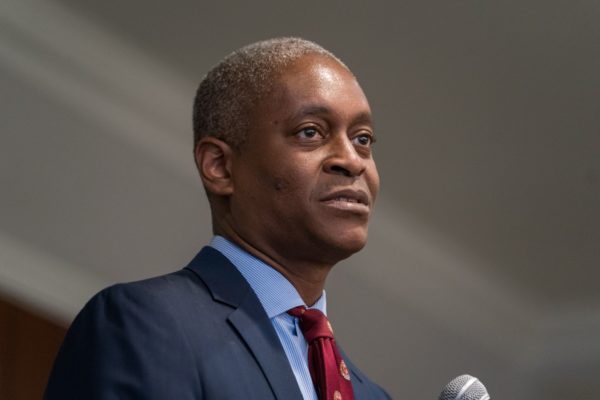By Steve Matthews

Central bankers need to speak up about economic barriers prompted by racism and the need for inclusion and diversity, Federal Reserve Bank of Atlanta President Raphael Bostic said, a response to critics who see the work as a distraction from the Fed’s main goals.
“I hear this a lot in terms of the work we are doing at the Atlanta Fed that you are talking about these issues that the Fed can’t solve,” Bostic said as part of a virtual panel discussion hosted by the American Economic Association. “That’s true — the Fed can’t solve them. But if we don’t talk about them, then these constraints on the successful execution of our economy and its growth and its innovation won’t happen.”
Republicans in Congress led by Pennsylvania Senator Pat Toomey, the party’s top official on the Banking Committee, have been sharply critical of what he calls “mission creep” at the Fed on issues like climate and racial justice. They have called on the Fed and its regional presidents to stick to a “narrow statutory mission” focused on maximum employment and stable prices.
“Someone has to talk about these,” Bostic said on the panel. “Our institution has that as our purview. So we want to talk about all the barriers and these are barriers and it’s important to think about.”
Hurdles to economic success are part of the Fed’s broader focus on full employment, Bostic said.
“This is an economic issue,” he said, and it directly affects the productivity of the economy. “We need to be speaking to that.”
Bostic didn’t comment on the economic outlook or monetary policy during panel discussion.
Much of the webinar focused on the lack of teaching of issues dealing with diversity and economic inclusion in college economics classes. Most U.S. professors don’t mention the issues at all, according to surveys cited by the panel participants.
Bostic, a former economics professor at the University of Southern California, broke new ground when he became the first Black leader of one of the Fed’s 12 regional banks during the bank’s history dating back to 1913. During his tenure, he’s championed more inclusive economic policies and efforts to counter systemic racism.
More stories like this are available on bloomberg.com.




